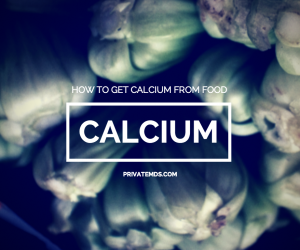
By Stephanie Lapinski, PPM’s Certified Nutritionist
Calcium is one of the most abundant minerals in the human body and while we associate it with bone and tooth health, it is also important for muscle development, healthy blood pressure, and skin health.
Calcium consumption also doesn’t exist in a vacuum. Just because calcium enters the body, doesn’t mean it is correctly used by the body.
Vitamin D and Magnesium are both necessary for the body to use calcium and without these, calcium won’t be absorbed correctly. Calcium and magnesium are both needed by the body but must be in proper ratio to be used correctly. The body uses magnesium to convert vitamin D into its active form so that it can be used in calcium absorption. Magnesium is also used in the creation of the hormone calcitonin. This hormone is vital for bone health and keeping calcium in the bones and not the blood stream, lowering the likelihood of osteoporosis, some forms of arthritis, heart attack and kidney stones.
Vitamin K is also important for calcium synthesis. It helps keep calcium in bones and out of arteries and muscles.
Calcium cofactors
Vitamin D
Vitamin K2
Magnesium
The best way to get calcium and its cofactors is through your food.
300-600 milligrams per day of calcium is recommended
Food Sources of Highly Absorbable Calcium
Dairy foods (full fat dairy)
Sardines with bones
Salmon with bones
Oysters
Seafood
Darky leafy greens (collards, turnip greens, bok choy, kale and broccoli)
Figs
Almonds
Sesame seeds
Call to schedule a nutrition consultation with Stephanie today (949)566-8179 or visit our website to learn more!

